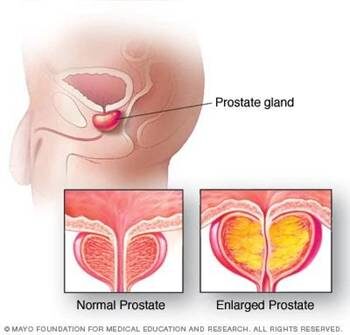
Benign Prostatic Hyperplasia
Benign Prostatic Hyperplasia, a condition more commonly known as BPH, is caused by an enlarged prostate gland that presses against the urethra causing the bladder to not be able to empty as easily. BPH occurs as men get older and has many factors that affect it. Hormone changes, genetics and lifestyle factors are thought to be contributing factors
Symptoms of Benign Prostatic Hyperplasia
Symptoms of BPH can include:
• Difficulty starting urine stream
• Inability to fully empty the bladder
• Weaker urine stream
• Increased frequency of urination
• Sudden urge to urinate
*Some patients may begin to experience urinary tract infections, bladder stones, or blood in urine if BPH is left untreated. Left untreated, symptoms do continue to worsen over time and may cause long term issues.
Diagnosis of Benign Prostatic Hyperplasia
BPH may be diagnosed with the following tests:
• Physician Exam and evaluation of symptoms
• Lab tests such as urinalysis and PSA (prostate specific antigen)
• Post void bladder scan
• Cystoscopy
• Digital rectal exam
• Urine flow studies
Treatment of Benign Prostatic Hyperplasia
There are many potential treatment options for BPH. Treatment will vary based on severity of symptoms and patient preference. For instance, patients with mild symptoms may only need to monitor their urination to evaluate for an increase in symptoms, while more severe cases may require medications to inhibit hormone production or relax the muscle in the prostate. Some cases may benefit from surgical intervention.
Medications
● Alpha blockers (ex. tamsulosin, alfusozin, terazosin)
● 5-alpha reductase inhibitors (ex. finasteride, dutasteride)-
● Saw palmetto
Surgical Procedures
In some cases, surgical intervention may be recommended to remove the prostate tissue that is blocking the flow of urine. The goal would be to hopefully be able to discontinue prostate medications after surgery. There are several surgical procedures available that we specialize in for treating benign prostatic hyperplasia, including (but not limited to):
● Transurethral resection of the prostate (TURP)
● Transurethral water vaporization of the prostate (Rezum)
● Urolift
Surgery for BPH usually provides effective results for many years. Patients should continue to have routine exams regularly and see their provider if they experience of recurrence of symptoms.
